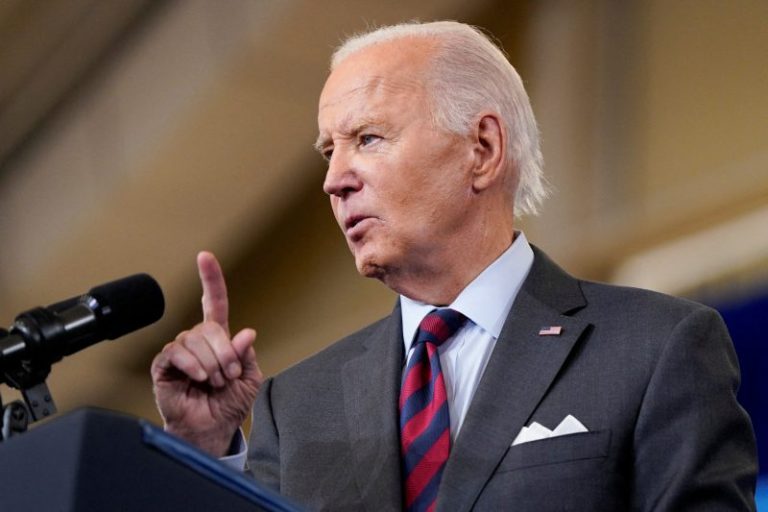CONCORD, N.H. — President Joe Biden sparked controversy Tuesday with a new attack line against former president Donald Trump, telling Democrats, “We’ve got to lock him up,” before moderating to suggest he meant figurative rather than literal incarceration.
After listing several dangers posed by a potential second Trump presidency at a Democratic Party campaign office here, Biden said: “I know this sounds bizarre. It sounds like, if I said this five years ago, you’d lock me up. We’ve got to lock him up.”
This post appeared first on washingtonpost.com

